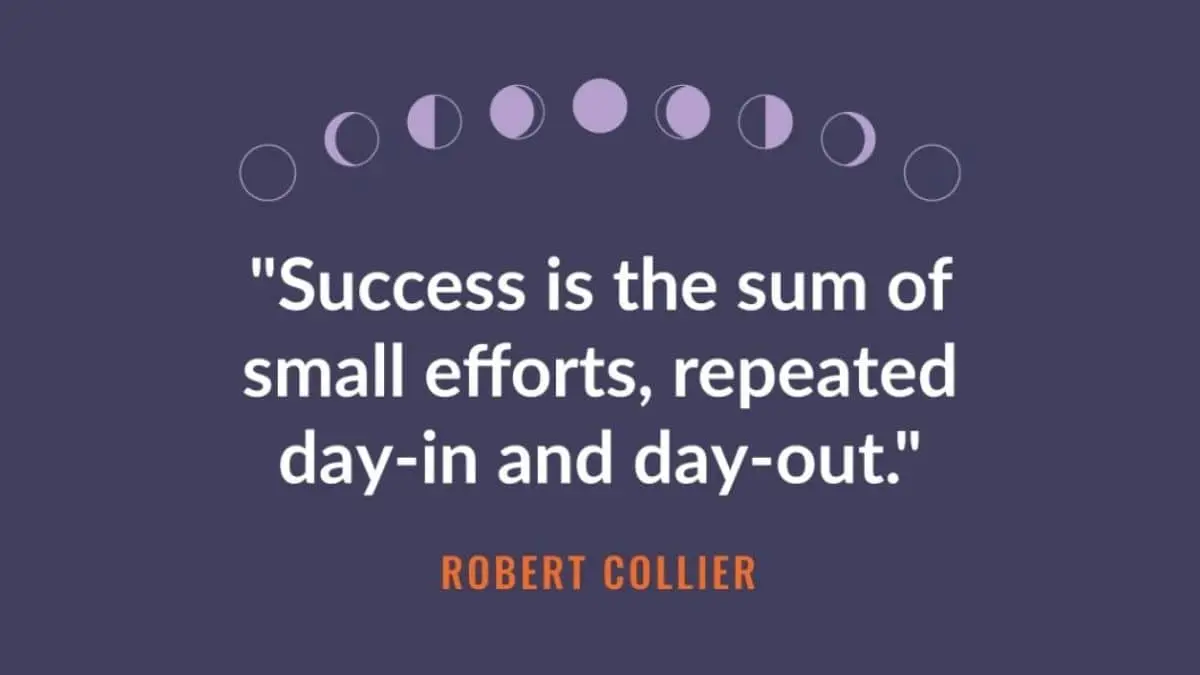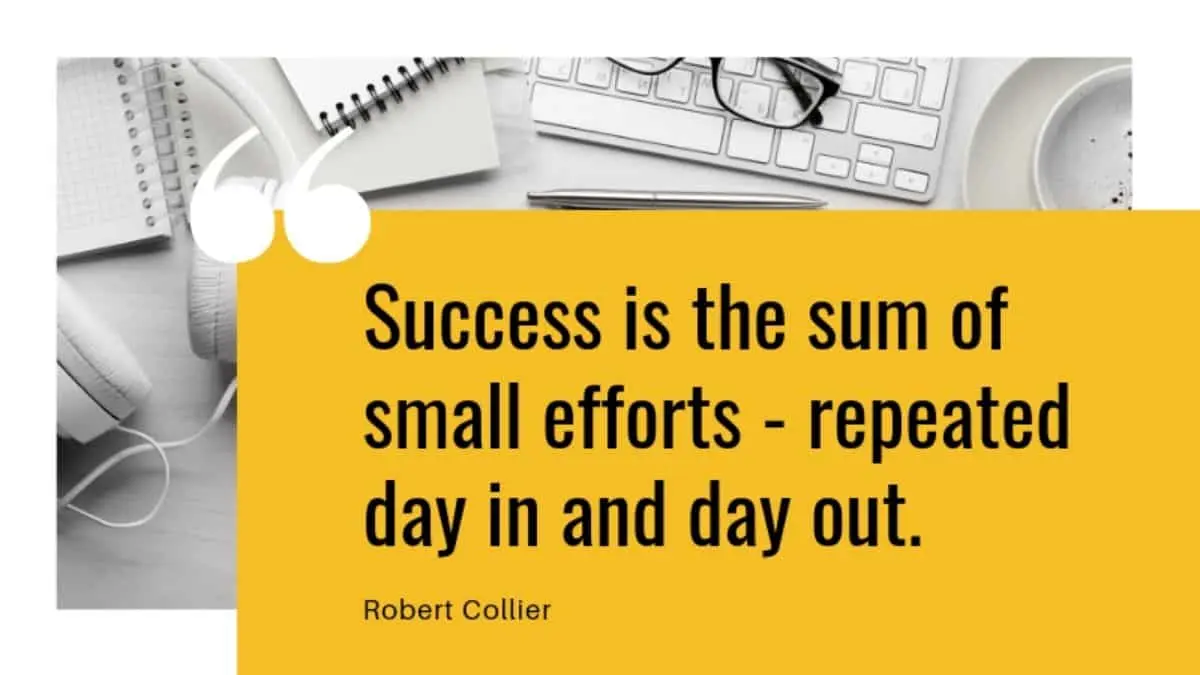“Success is the sum of small efforts, repeated day in and day out.” This profound statement by Robert Collier, an influential American author of self-help and motivational books, encapsulates a timeless and universal truth. In our fast-paced, technologically driven world, where instant results and quick fixes are often sought after, Collier’s words serve as a powerful reminder of the enduring value of persistence, patience, and incremental progress.
The quote underscores a fundamental principle that lies at the heart of many great achievements: success is rarely the result of a single, monumental effort. Instead, it is often built upon the foundation of small, consistent actions, diligently performed over time. Whether it’s in the realm of personal development, professional growth, artistic pursuits, or technological innovation, the path to success is typically marked by a series of small steps, each one building upon the last.
In today’s society, where the pressure to achieve can be overwhelming, this quote offers a different perspective on what it means to be successful. It suggests that success is not exclusively reserved for the extraordinarily talented or the exceptionally fortunate. Rather, it is accessible to anyone willing to commit to the steady, often unglamorous work of daily effort.

Strategies for Implementing Small Efforts
The philosophy that “Success is the sum of small efforts, repeated” is not just a motivational statement but a practical approach to achieving goals. Implementing this philosophy involves adopting specific strategies that transform small efforts into significant achievements over time. Here are some key strategies to consider:
1. Goal Setting and Refinement
- Define Clear, Achievable Goals: Begin by setting clear and specific goals. These goals should be realistic and achievable, tailored to your abilities and circumstances.
- SMART Goals: Utilize the SMART criteria (Specific, Measurable, Achievable, Relevant, Time-bound) to refine these goals. This approach ensures that your objectives are well-defined and trackable.
2. Breaking Down Large Goals into Smaller Tasks
- Divide and Conquer: Large goals can often seem daunting. Break them down into smaller, more manageable tasks. This makes the process less intimidating and provides a clear roadmap.
- Step-by-Step Approach: Focus on completing one small task at a time. This gradual approach helps maintain momentum and avoids the overwhelm that can come with big projects.
3. Establishing Daily Habits
- Routine Building: Incorporate small tasks related to your goals into your daily routine. Consistency is key in building habits that stick.
- Cue-Routine-Reward Cycle: Leverage the habit loop, which involves a cue (trigger), a routine (the action), and a reward (benefit). This pattern helps in solidifying new habits.
4. Time Management and Prioritization
- Effective Time Allocation: Allocate specific times of the day for these tasks. Prioritize tasks based on their importance and deadline.
- Avoid Multitasking: Focus on one task at a time to ensure quality and efficiency.
5. Tracking Progress and Reflecting
- Regular Reviews: Keep track of your progress regularly. This could be through a journal, a digital tool, or any method that allows you to see your growth over time.
- Reflect and Adjust: Reflect on what’s working and what’s not. Be prepared to adjust your strategies as needed to stay on track towards your goals.
6. Seeking Feedback and Support
- Constructive Feedback: Regular feedback, either from a mentor, peer, or through self-assessment, can provide valuable insights into your progress and areas for improvement.
- Support Networks: Engage with support networks, be it friends, family, or professional networks, who can provide encouragement and advice.
7. Maintaining Motivation and Resilience
- Celebrate Small Wins: Acknowledge and celebrate small achievements. This boosts motivation and reinforces the value of small efforts.
- Resilience in the Face of Setbacks: Understand that setbacks are part of the journey. Develop resilience by learning from failures and persisting despite challenges.
Conclusion
In conclusion, the maxim “Success is the sum of small efforts, repeated” offers a powerful and pragmatic blueprint for achieving our aspirations. This approach demystifies the often overwhelming concept of success, breaking it down into attainable, daily actions. It reaffirms that success is not exclusively the domain of extraordinary talent or luck, but rather the result of persistence, consistency, and the accumulation of small, deliberate efforts.
Also Read: Motivation is what gets you started. Habit is what keeps you going









